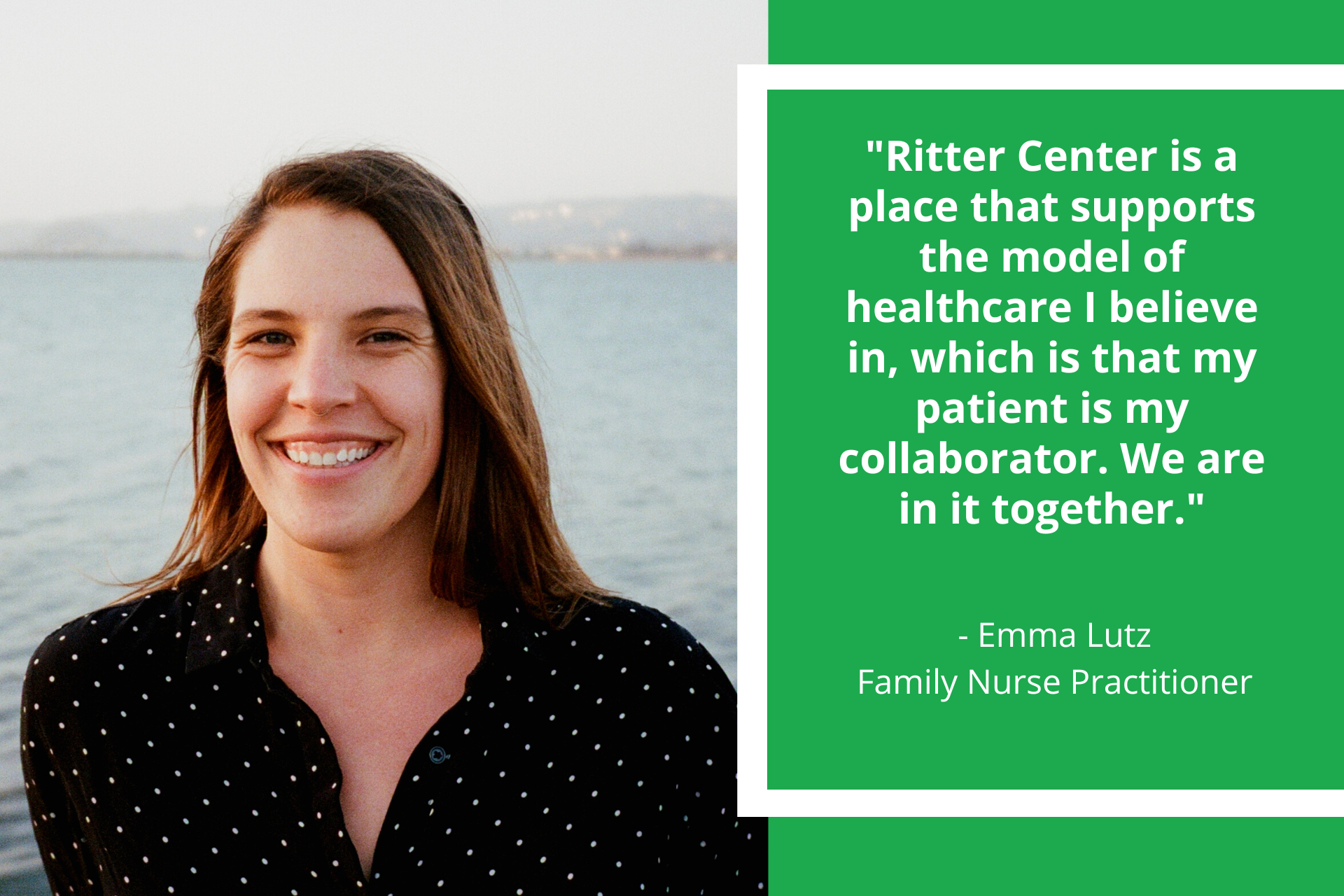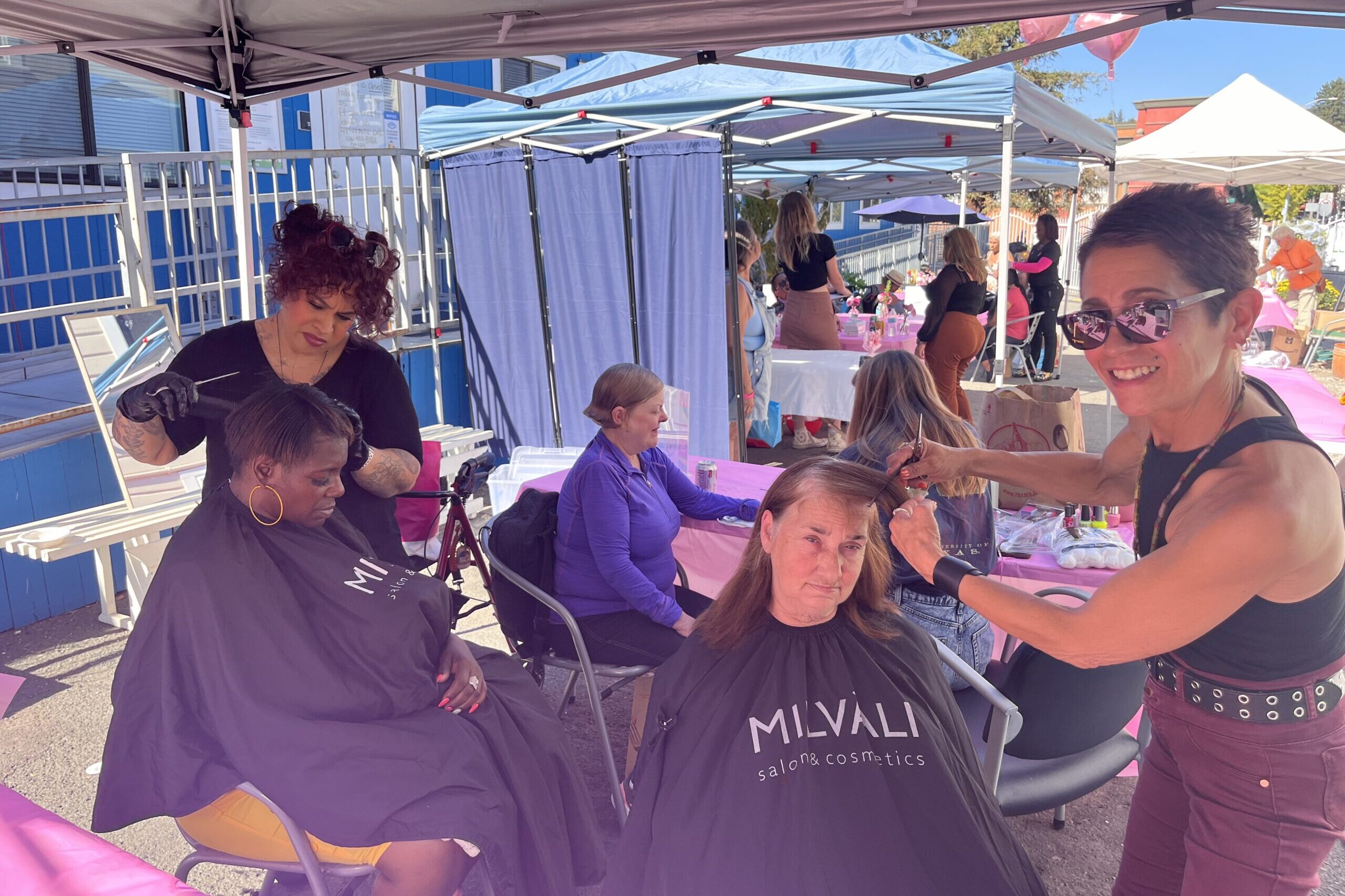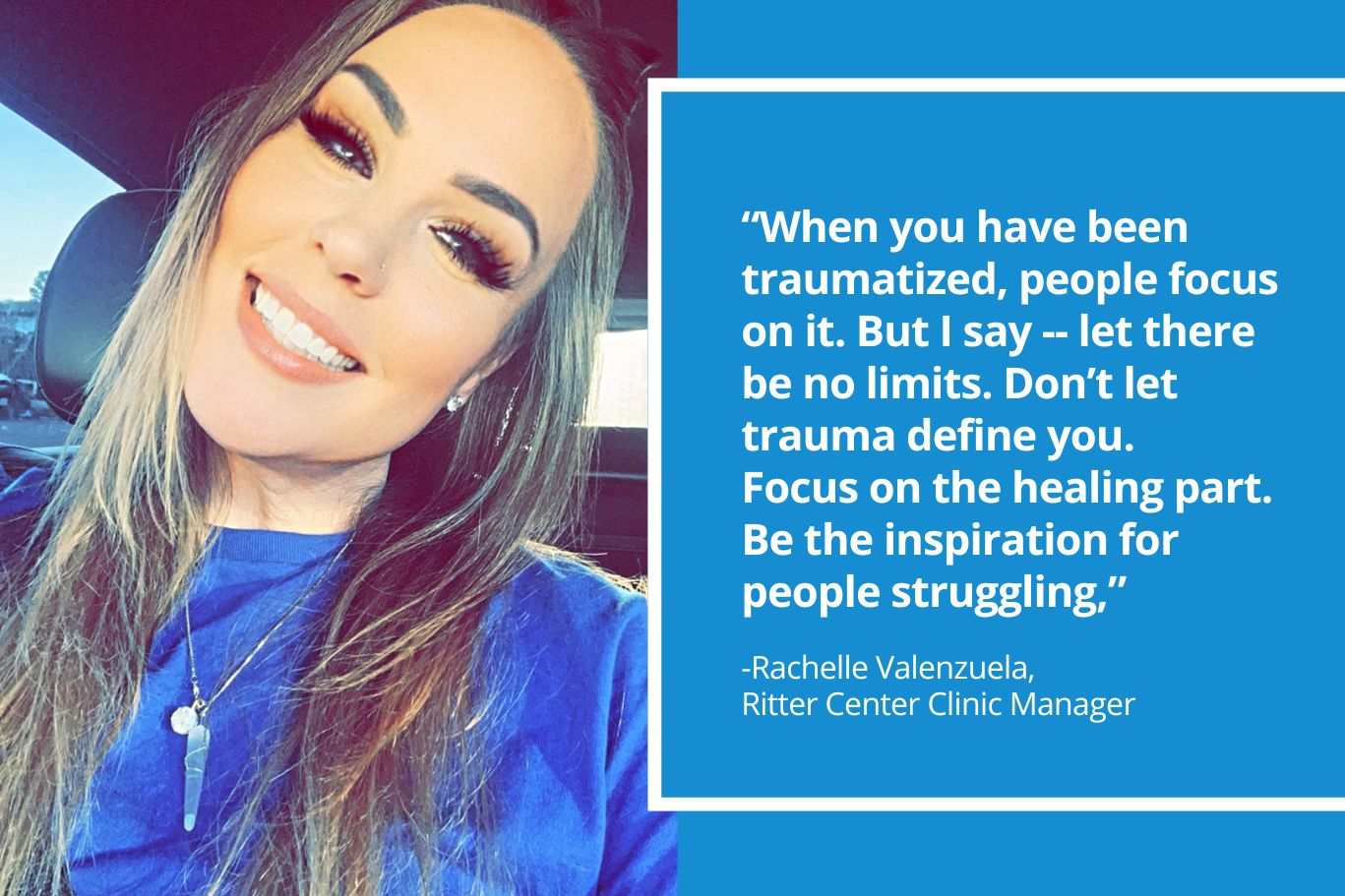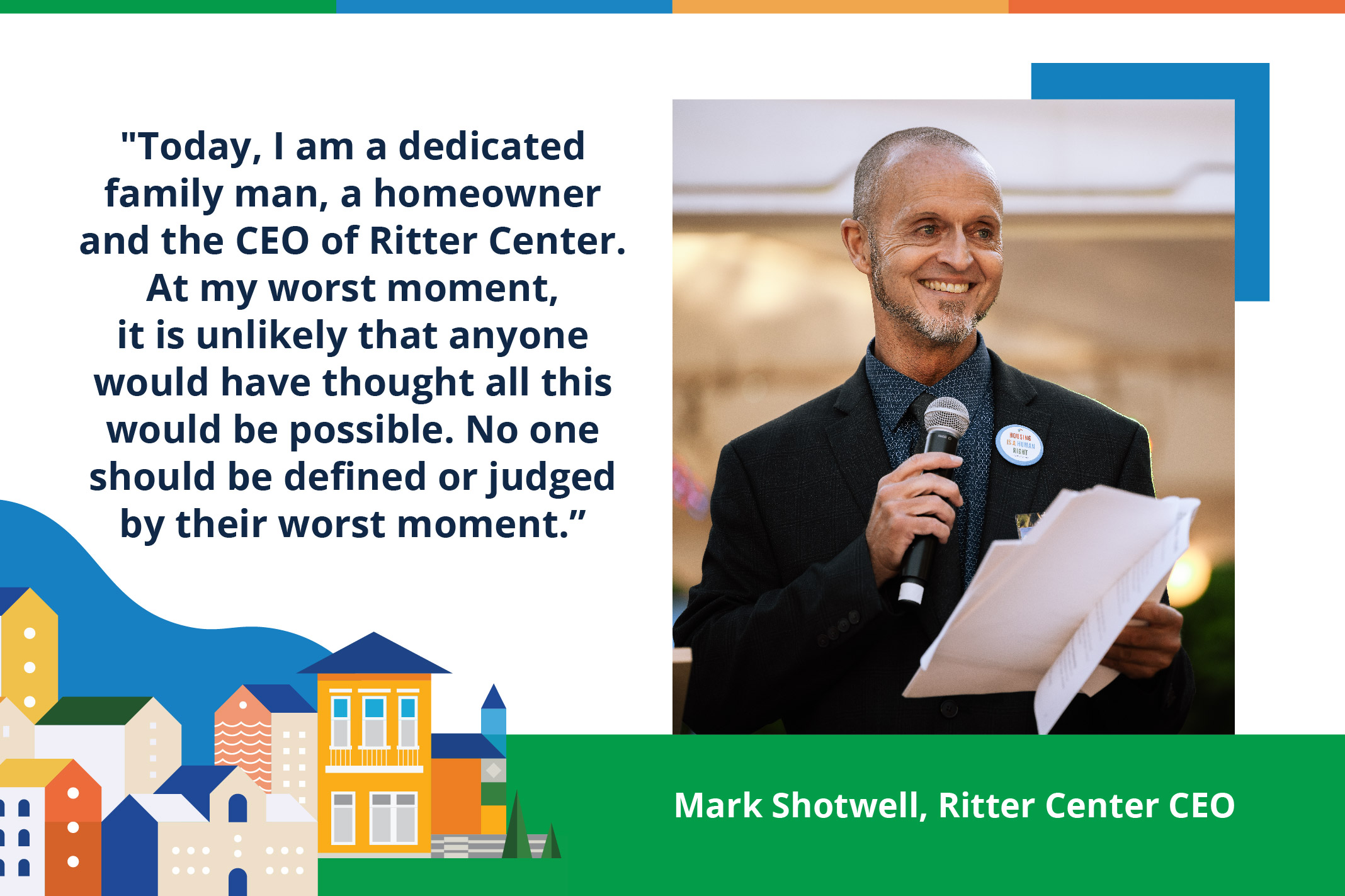
“Physical and mental health is one!” – Emma Lutz, Family Nurse Practitioner
Emma Lutz is the Ritter Center Family Nurse Practitioner.
“Ever since I was little, I have loved medicine,” said Emma Lutz, Ritter Center Family Nurse Practitioner. “Even in high school, I would read the diagnosis column in the NY Times. I was fascinated with the mystery of medicine. There was always something new happening in the field, and I knew I wanted to go into healthcare.”
Emma was pre-med in college with a plan to attend medical school, but at a certain point in college, she entered an exploratory phase. Working in physical therapy as an aide and volunteering at the Women’s Free Clinic in SF, she began to envision a new future.
Over time, Emma’s volunteer role at the Women’s Free Clinic evolved; from the first point of contact and coordination with Medi-Cal to the medical assistant and street outreach team.
“This is how I got inspired for my career. I was not yet a nurse at that point, but I truly fell in love with the work and the practitioners I worked with. It was just what I had been looking for – that missing combination. I love medicine and getting to know people through their bodies. It is the humanistic side of it that resonates with me. It is also the support I can offer another human being. It might be based on a harm reduction model and include safe sex supplies, basic hygiene, or food,” reflected Emma.
It was then that Emma realized she wanted to become a nurse practitioner. A woman in the clinic became her mentor and helped her through the process. She attended UCSF for school.
Now, in her role at Ritter Center, it is a full circle moment for Emma. She has come back to the same type of work that inspired her to become a nurse practitioner in the first place.
“Here at Ritter Center, I can reconnect to this passion of mine, and to show up for people in this way. I have been able to grow so much in this position. Whether it is providing women-to-women care, such as a Pap smear, to female or female-presenting patients or lending an ear to actively listen, this work is a true joy. Also, being a part of the street medicine van means everything to me.
It is precisely what I’m meant to do in the field. Our partnership with CAM and SPAHR means we can meet people where they are in their health right now. It is inspiring.
Ritter Center is a place that supports the model of healthcare I believe in, which is that my patient is my collaborator. We are in it together.They have as much say in the process as I do. I have opinions and training I can share, but it is a partnership all the same,” passionately described Emma.
Emma strives to develop a special relationship with her patients. She is mindful not to have her own agenda.
“It is a practice, and I choose this word with intention. The practice of medicine is the idea. I am humble about what I do and do not know. My patients know more than I do about their health and their bodies. I support them on their journey and share what I can,” shared Emma.
Emma grew up in Berkeley, and it has always been important for her to give back in service of others. A major part of going back to school for her was to be able to work as a nurse practitioner in the Bay with the community in a meaningful way. Her goal is to help underserved people, particularly in light of this region’s striking inequities in wealth and poverty.
“Let’s make the system work better to give every human being the care they really deserve. Recently, we were able to care for and help a patient at Ritter Center suffering from a severe skin infection,” recalled Emma.
This client’s wound came back positive for different types of life-threatening bacteria, and the person needed the support of repeatedly coming to the clinic to be encouraged to take antibiotics in the clinic as supervised medication treatment.
“Through the process of doing this, we got to know him and built a rapport. I collaborated with his case manager at Ritter Center, and our teamwork led to a successful treatment for MRSA and other skin pathogens. To build this relationship and nurture trust, we let the patient pick a favorite song in the waiting room and even had a dance party. Now he’s showing up literally and figuratively for himself. He’s engaging fully now with several treatments for his overall health,” said Emma.
Every little success should be celebrated. Showing up alone is a success.
“Can I be the missing link to mental health care for our patients? Help to erase the stigma? I tell them I am in therapy, too. In sharing parts of my story about struggling and learning tools for managing anxiety, our patients might no longer feel like they are alone. As primary care providers, we are on the front line. We can make the difference. Even if I can’t get them to start therapy, they may start talking to me about job loss or housing insecurity. Physical and mental health is one,” urged Emma.
Recently, Emma had a patient she wanted to connect to therapy. This patient had been going through a lot and was resistant at first. But, by the end of the visit, they decided to make it happen together. The client made an appointment and started therapy two days later.
“Given the profound challenges of our patients, we can’t expect them to necessarily always be able to take care of themselves in the same way that someone else might be able to – that’s why I believe that all of health and wellness is essentially behavioral health, too. I can’t get my blood drawn, or CT scan if I’m too anxious. Mental health must come first,” emphasized Emma.




